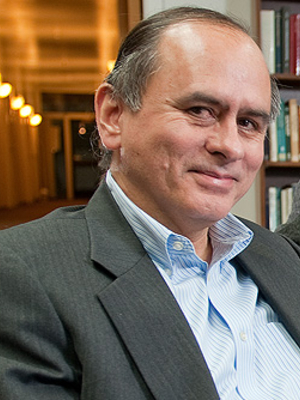Race, Ethnicity, and Immigration
Leaders: Linda Burton, Tomás Jiménez, Hazel Markus, Douglas Massey, C. Matthew Snipp
The CPI has an extensive research program on race, ethnicity, immigration, and poverty. The National Poverty Study, for example, is designed to rigorously compare differences across rural black, deindustrialized, reservation, and other “racialized” poverty forms. The CPI also runs a comprehensive program on Hispanic poverty that explores such topics as the “chilling effect” of anti-immigrant laws on program use, the reasons why, contrary to much speculation, the Hispanic poverty rate has not taken off, and the causes of the so-called Hispanic Health Paradox (see, for example, our Pathways Magazine special report on poverty, inequality, and mobility among Hispanics). And one of the CPI’s most distinguished affiliates, Jennifer Eberhardt (who is on the CPI directorate), is carrying out a groundbreaking big-data analysis of policing and race. We list below a sampling of other CPI projects on race, ethnicity, immigration, and poverty.
Poverty among refugees: The U.S. refugee population faces very high rates of poverty, yet we know very little about the effects of different resettlement programs and approaches. There are efforts afoot to exploit available administrative data and begin to find out what works and what doesn’t.
Arrests, race, and poverty: Why are some arrests resolved informally while others are converted into a criminal record that then has a life-long scarring effect? The process of converting an arrest into a criminal booking may play an important role in generating downstream racial disparities.
Reducing the race gap in test scores: The new Stanford Education Data Archive (SEDA) is a rich resource that is providing the most systematic evidence to date on the capacity of school-district policies to reduce the racial gap in test scores.
Poverty and schooling on reservations: Why are test scores and educational outcomes on Native reservations so low (relative to the national average)? In a new project by the noted ethnographer Martin Sánchez-Jankowski, we’ll be learning more about how traditional and formal education are viewed and the ways in which they might be better integrated.
CPI Collaborators
 |
Joshua Guild |
Associate Professor of History and African American Studies |
Princeton University |
 |
Emily Hannum |
Professor of Sociology and Education; Associate Director, Population Studies Center |
Univerisity of Pennsylvania |
 |
Jackelyn Hwang |
Assistant Professor of Sociology |
Stanford University |
 |
Tomás Jiménez |
Race, Ethnicity, and Immigration Research Group Leader; Director of Undergraduate Program on Comparative Studies in Race and Ethnicity; Director, Graduate Studies, Department of Sociology; Associate Professor of Sociology |
Stanford University |
 |
Teresa D. LaFromboise |
Professor of Education, Professor of Counseling Psychology; Member of Child Health Research Institute, School of Medicine |
Stanford University |





